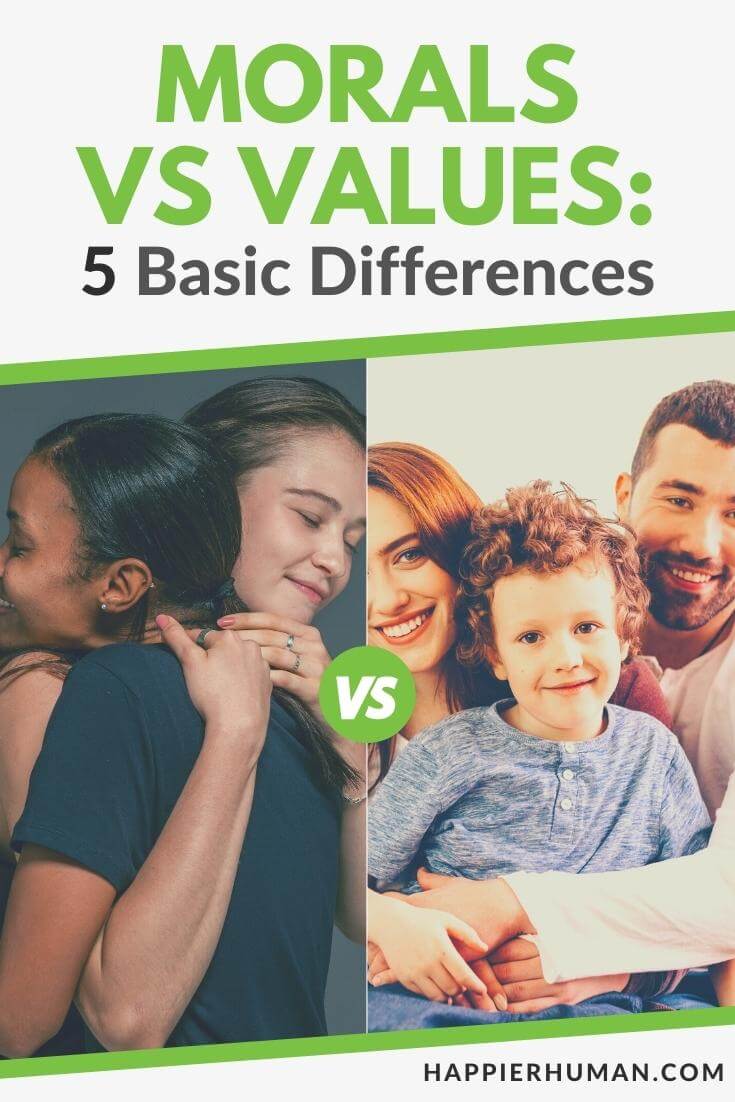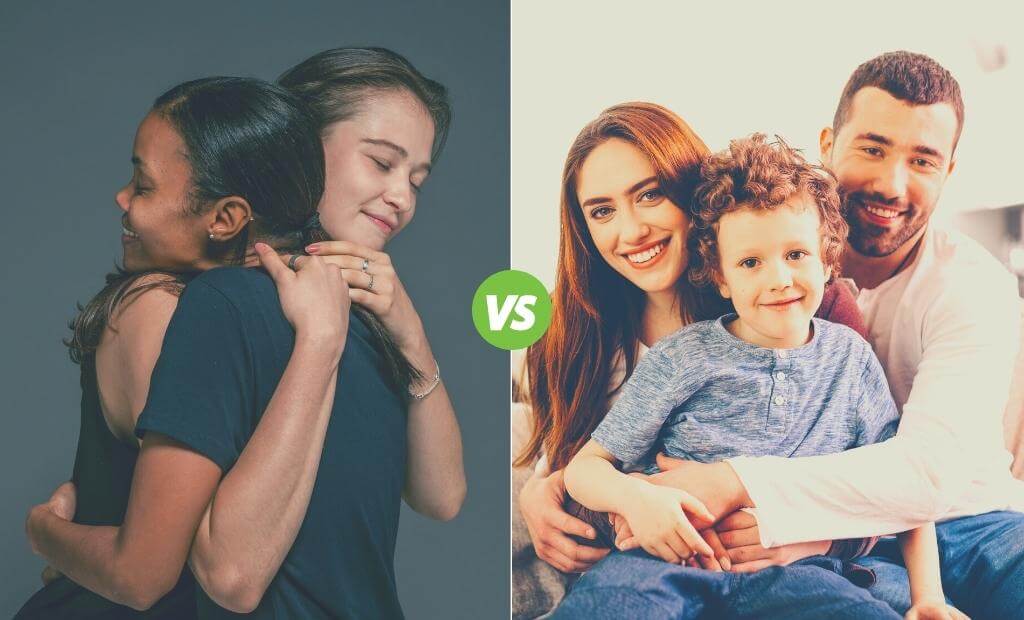There might be affiliate links on this page, which means we get a small commission of anything you buy. As an Amazon Associate we earn from qualifying purchases. Please do your own research before making any online purchase.
Many of us would admit we have seen a change in our society in the past couple of decades. We have taken steps forward for women's empowerment, social justice, and many other social issues plaguing our world.
Yet we have also taken steps back in some of the most fundamental issues that destroy our planet and tear apart our families. These issues in society also have people feeling unsafe when leaving their homes. In addition, there is an overwhelming sense that the world is growing absent of morality.
Yet, there is hope. The moral compass in society has not been completely broken. There are still strong, honest, and compassionate people in the world who have great morals and personal values. These people are the ones we say “give us faith in humanity” because they show us “there are still good people in this world.”
Whether you are ordering food at a restaurant, hiring an employee, or grading a student's paper… you do so with the belief that you can trust them to do the right thing.
People with great moral character and a strong sense of personal values hold the world up, even though parts of our society seem to crumble.
What are Morals?
Morals are principles or rules that someone applies to their lives each day. They are foundational to what is considered to be right or wrong. Especially when living corporately with others.
Morality is not a fixed thing. What is considered in our culture as acceptable doesn’t necessarily reflect the morals in other cultures. Most morals reflect a person’s external factors such as parents, community, religion, nation, etc.
For instance, a Reddit thread once asked the question, “What is something weird that Americans do in the US that you find strange, being from another country?” Great traction was gained from a response that stated how the US has commercials for prescription drugs.
Those ads told people to ask their doctors for certain types of medication for specific ailments. However, it is not that way in other countries, like the UK.
They take what medicines the doctor prescribes for medical conditions. Not tell the doctor what to give them. Telling the doctor what to prescribe seems like an overreach.
So, our moralities are usually influenced by the geographic regions we live in, the religions we hold true, our families, and our life experiences.
Many don’t agree on how morals are initially developed. However, there are theories out there that seem most plausible.
There has been a shift and change in morals over time in our society. Many feel different about pre-marital sex, same-sex relationships, or the use of cannabis – than they did just 20-30 years ago.
Some morals are universal. Such as:
Here are some common morals that are usually taught generationally.
What are Values?
What are values? They are similar to morals but are more inward-focused. Values are goals you work toward and can define the core of your identity. So, what you work toward shows what you value.
Values are also personal in nature and determine the motivation for our behavior and the priorities we set. Understanding one's values help to guide them toward a direction that they find satisfying and rewarding in life.
Values serve as the guardrail of our lives. They help us not to get out of bounds chasing something immediate and impulsive when it is not a part of the overall “big picture.”
It ensures that our actions gain ground toward the overall plan and destination we seek to get to personally or professionally.
Knowing your personal values can answer the following questions.
Values are a lot like morals because they can change over time. The personal values that you held as a child change as you get older and come into adulthood, build relationships, and make your mark in this world. For example, what made sense to you when you were single, no longer works once you get married or have children.
However, our values are of great benefit to us. We open the door to much anxiety and stress if they are not recognized and followed. Furthermore, we must place priorities on our values. For instance, we may value knowledge and sharing wisdom with others. We may also value relationships in our lives.

But our overall goal is to have peace and happiness. So, to have the overall accomplished, we may have to prioritize the relationships in our lives more than the need to be looked on as right and knowledgeable.
The following are examples of things that conflict with our personal values that may be causing stress and internal conflict.
It is vital with personal values that you change what you can to ease the inner tension you may be feeling. First, however, you must learn to be supportive and rely on your moral compass when navigating through situations that are beyond your ability to control. This is how the two work together to bring harmony into our lives.
Now let’s take a look at morals vs values and examine some key differences.
Morals VS Values: 5 Basic Differences
1. Morals are defined by what society wants from you. But your values are the definition of what you desire personally.
For example, society wants you to respect others' property. Therefore, it is morally wrong and illegal to walk into a retail store and take merchandise from the premises you did not pay for.
However, I've learned from years of security and loss prevention work that everyone doesn't share those same morals. For example, I once apprehended a shoplifter. He was stressed out because stealing and selling stolen merchandise was how he provided for his family.
Stealing was morally wrong, but to him, his values for providing for his family trumped societal expectations.
2. An action may be morally acceptable to society. However, that same action may not align with someone’s personal values.
For example, consuming alcoholic beverages are the norm in today's society. In fact, if you are over 21 and don't drink, many feel there may be something wrong with you.
Even though many feel that way, and it is not morally unfit to consume alcoholic drinks, they go against your personal values. It could be that you vowed never to drink because you grew up with alcoholic parents, and you see how it can negatively affect the household.
3. Morals are considered doing what is right or wrong in society. But values are not considered mandatory by society.
An example of this is when Brad was in convenience store buying milk for his young baby at home. On his way to the register, he noticed that the cashier was being robbed at gunpoint. Society says it is morally acceptable for him to hide until the robber is gone.
Besides, he has a child at home and should stay out of harm's way so that he can make it home to his child. However, Brad is a retired military veteran skilled in hand-to-hand combat.
He knows he can take the robber down and values being courageous, compassionate, and brave above all else at the moment.
4. Morals are often taught and don’t naturally come innate within a person. However, values are often morals that have been prioritized.
For instance, the business morals taught at Lois’ sandwich shop are to provide fast, excellent, quality, and prompt service.

She also stresses to her employees to work safely. Of course, Lois is in the business of making money (because that is what companies do). But she always stresses to her employees that she values safety above all else.
5. Morals are considered deep-seated rules which are taught to someone on how to govern themselves. But values are not taught by teachers and change over time, according to one's needs.
Leaders in a mosque and elders in the family often teach morals in a religious setting. These strict guidelines on behavior are passed down from generation to generation. They govern how a person is to act, dress, and believe.
However, many people have made personal decisions to walk away from those deep-seated teachings because they did not value those rules as a way to govern this stage of their lives. They felt it was holding them back from self-expression and the freedom they desired to live.
Final Thoughts on Morals VS Values: 5 Basic Differences
Many of us have struggled with making big decisions and finding direction in our day-to-day lives. Our parents, friends, and other outside influences often sought to guide us to what they felt was the best outcome for us. And, we must admit, having a good moral compass opens many doors for us on our jobs and in our communities.
Being known as someone who keeps their promises, doesn’t cheat, treats others as they wish to be treated, and doesn’t destroy the property of others is to have a good name. Furthermore, if that is our character, we are widely considered good people.
However, having solid personal values may cause us to break the code of one of those morals to fulfill what we believe is a greater purpose. Like seeing a dog left in a hot car, so you bust the window out to save the pet.
Do you remember the days of Sears and Roebuck? Those old magazines had everything you could ever want for your household. They were also super thick, and you could literally shop those pages for hours (they remind me of Amazon or Walmart.com before there was one).
Morals remind me of that magazine. There are many things we can find in that magazine to be useful for our lives. But personal values are like the items in the magazine that we place a priority on. The magazine is filled with good things.
For instance, top-of-the-line motor oil. But if you do not have a car, you would not spend the money purchasing that item because it is not of value to you.
If we can be anything in the world, we should be people of great moral character. People who are thoughtful and think about the needs of others.
May our values find a foundation upon those morals and give us the personal conviction to construct the life we were meant to live. Because personal values should guide us to a place of fulfillment and inner peace.


